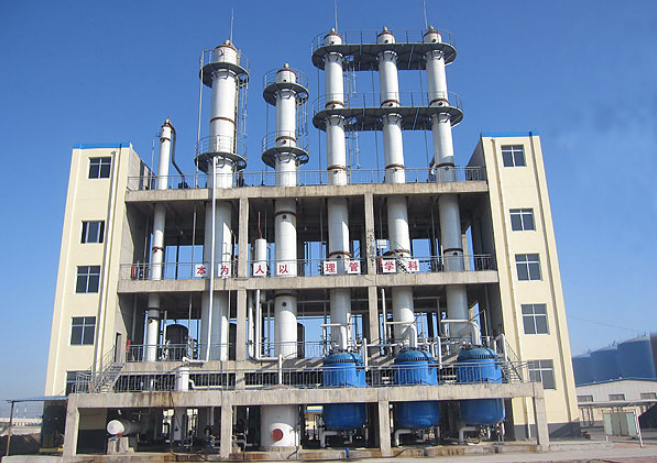Ethyl acetate is considered to be one of the least environmentally harmful of organic solvents. It is very effective while it is easily broken down in both air and water.
Introduction: Ethyl Acetate's Eco-Friendly Profile
Ethyl acetate, a compound formed by the combination of ethanol and acetic acid, is often considered more environmentally friendly compared to many other solvents. Its favorable environmental profile stems from several characteristics and properties, making it a popular choice in various industries.
Biodegradability: A Key Environmental Advantage
One of the primary reasons for ethyl acetate's eco-friendly reputation is its biodegradability. When released into the environment, ethyl acetate can break down relatively quickly through natural processes. Microorganisms present in soil and water are capable of metabolizing ethyl acetate, converting it into carbon dioxide and water. This ability to degrade naturally helps reduce its impact on ecosystems compared to other chemicals that persist in the environment for extended periods.
Low Toxicity Levels
Additionally, ethyl acetate has low toxicity levels for both humans and aquatic life when compared to other commonly used solvents. This characteristic reduces the risk of harm to living organisms in case of accidental spills or exposure, contributing to its environmental suitability.

Production from Renewable Resources
Furthermore, the ethyl acetate production process can be more environmentally friendly than that of some alternative solvents. It can be derived from renewable resources such as biomass, including fruits, grains, and trees, making it a more sustainable option. For instance, it can be produced through fermentation, where ethanol derived from plant-based sources reacts with acetic acid, often obtained from renewable sources like bio-based ethanol or agricultural byproducts.
Indirect Environmental Benefits
Moreover, ethyl acetate's use in various applications can contribute to environmental benefits indirectly. For example, it is commonly used as a solvent in the production of paints, coatings, and varnishes. When used in these products, ethyl acetate can help reduce the levels of volatile organic compounds (VOCs), thereby lowering the overall environmental impact of these products.
Diverse Applications
Additionally, its effectiveness as a solvent extends to applications in pharmaceuticals, cosmetics, and food industries. Its ability to dissolve various substances without causing harm or adverse reactions in most cases makes it a preferred choice over more toxic alternatives. In the pharmaceutical industry, for instance, it's utilized in the formulation of medications and as an extraction solvent for natural compounds due to its relatively low toxicity.
Considerations and Limitations
However, while ethyl acetate has several environmental advantages, it is essential to consider certain aspects that may limit its complete eco-friendliness. Despite being biodegradable, large-scale releases of ethyl acetate into the environment can still pose risks, especially if not properly managed. High concentrations of ethyl acetate in aquatic environments can potentially harm aquatic life, even though it degrades more readily than some other chemicals. Furthermore, the production of ethyl acetate may still involve energy-intensive processes, especially if derived from non-renewable resources. The energy requirements for production, along with any associated emissions, should be considered when evaluating its overall environmental impact.
Conclusion
In conclusion, ethyl acetate presents several environmentally friendly characteristics that make it a preferred choice in various industries. Its biodegradability, low toxicity, and potential for production from renewable resources contribute to its reputation as a more eco-friendly solvent compared to many alternatives. However, ensuring responsible management to prevent large-scale environmental releases and considering the energy requirements in its production are essential for maximizing its environmental benefits. When used responsibly, ethyl acetate can be part of a more sustainable approach in industrial processes and product formulations.
















